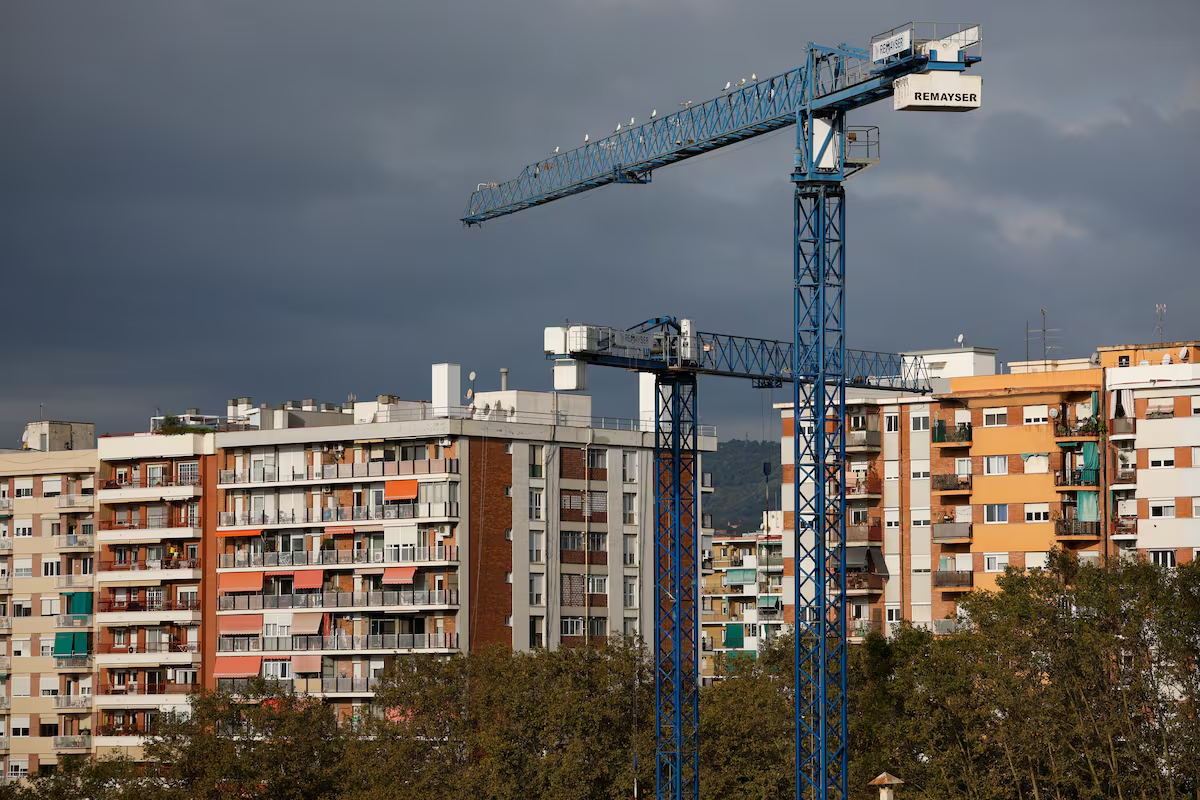
We believe that in Spain there are no far-left discourses that are present in the public debate, but they can be clearly seen with the housing issue. The mantra has spread that we don’t have to build more apartments to solve the problem, that the houses are already there somewhere and all that remains is to distribute them expropriating to anyone necessary. Although these stories are disguised as do-gooders, they are only useful for profiting from city unrest.
The Bank of Spain said it clearly: this year, our country it would accumulate a deficit of 600,000 apartmentsand renowned experts, such as economics professor José García Montalvo, argue for the need to build affordable housing so that there is more supply and prices are reduced. Between 2022 and 2025, the Spanish population increased by one and a half million peopleand were created, on average, approximately 250,000 families per year. Although these require a ceiling, several parties on the left of the PSOE have subscribed to these theses on degrowth, leave for neoliberalism or pseudofacha to anyone who dares talk about building houses. They cling to the argument that there are around 3.8 million empty homesas estimated by the INE based on electricity consumption data for those properties.
However, that figure has been refuted. Ada Colau, for example, showed up at the mayor’s office in Barcelona convinced that there were many empty apartments and they simply had to emerge. It was soon discovered that these represented only 1.22% of the city’s apartments, that is, they were around 10,000 homes, a far cry from the more than 104,000 expected. According to a study coordinated by García Montalvo and Josep Maria Raya Vílchezthe reason could be that many official sources tend to overestimate data on empty housing. Furthermore, most unoccupied properties are usually located in cities or rural areas, and this does not solve the problem: people today are concentrated in large cities, which are the most stressed.
Likewise, it is said that construction will not lower prices because during the brick bubble there was a lot of construction and prices did not even fall. It is not true. So, the bubble was one of credit, not supply, and today banks don’t give out money as easily as they did back then, nor are people able to save much. As Jorge Galindo demonstrates in his book Three million homesthe increase in supply ended up lowering apartment prices when the credit tap was turned off, starting in 2008.
Therefore, the housing debate is being filled with ideological fetishes and citizens cannot be blamed for this. Political inaction is the main reason why monsters are generated, such as tenants’ resentment against landlords. The problem is that this thirst for revenge prevents a rational evaluation of the measures applied. For example, controlling rent prices has been counterproductive for many tenants in Barcelona. The city has contained price increases in 2024, but at the cost of fewer people being able to access housing: in the same period contracts were reduced by 15%. What happened to that offer? We have moved on to seasonal rentals – where the price can continue to be set freely – and this has already made sense up to 40% of the total rental market in the city. Curiously, only 7.5% of this amount are tourist apartments, although some voices insist that this is the biggest problem.
A similar thing happens with talk about vulture funds. The Bank of Spain recognized a relationship that in 2021 only 8.1% of the rental market was in the hands of businesses, and added that in our country ownership is not concentrated, but “small owners stand out”. Other sources increase the number of large holders private up to 10-15%. Be that as it may, the measure proposed by Minister Isabel Rodríguez to give tax incentives to these companies to rent out their apartments is considered insufficient. A similar situation occurs with the request made by President Pedro Sánchez in Brussels to prevent the acquisition of non-residential housing: a study in the Netherlands concluded that limiting the purchase to investors who intended to rent did not cause a significant decrease in sales prices, but did cause an increase in rents.
In short, Spain continues to have a problem of lack of investment in housing, especially in social protection (rental and purchase). While in the European Union the average expenditure was 161 euros of investments per capita per year between 2007 and 2021, in our country It was 34 euros per inhabitant and year versus 335 euros in Ireland, 319 in Denmark or 274 in France. The problem is that building is not so profitable for the political class: it is slow, it would force them to take money from other priorities that give more immediate votes and the medal would perhaps even go to another government. We cannot be naive: populist speeches are not the cause, but rather the trompe l’oeil to keep citizens distracted and angry at straw dolls without providing effective solutions.





